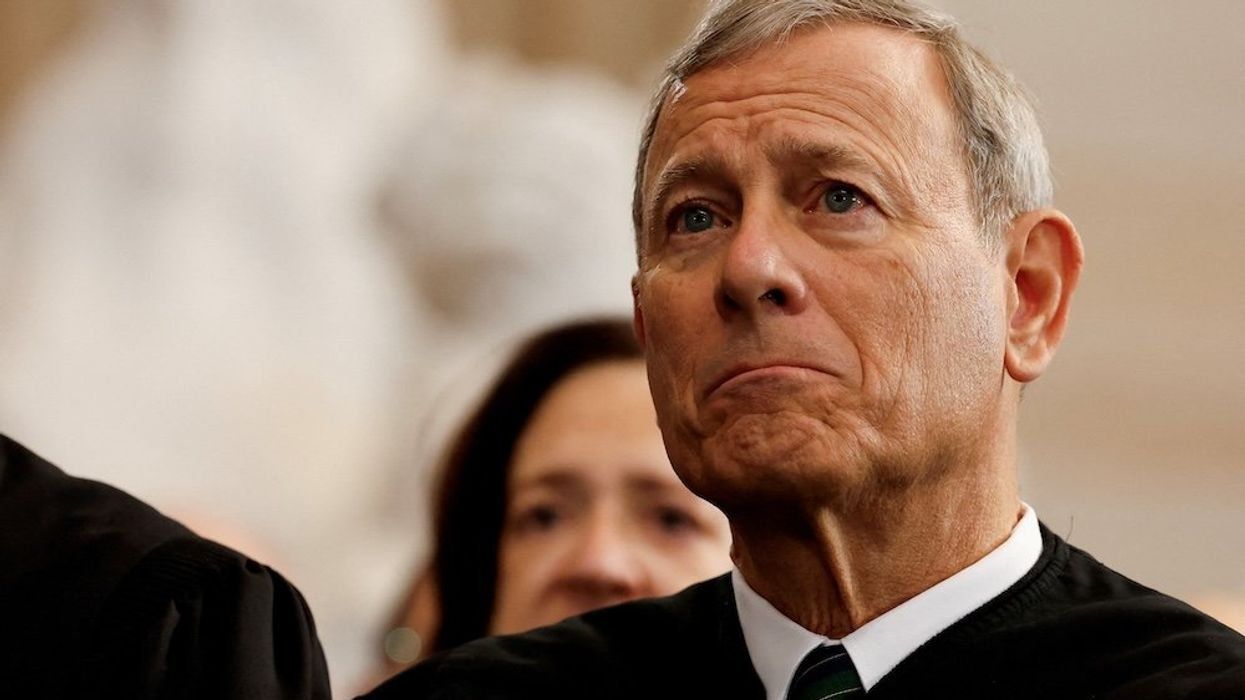During President Donald Trump's second administration, the 14th Amendment to the U.S. Constitution has been mentioned in many articles and cable news conversations — often in reference to birthright citizenship. Trump's executive order ending birthright citizenship, according to countless legal scholars, is blatantly unconstitutional because birthright citizenship is protected by the 14th Amendment.
But birthright citizenship isn't the only important part of the 14th Amendment, which also contains the Reduction Clause in its Section 2.
Michael Meltsner, a law professor at Northeastern University in Boston and former NAACP Legal Defense Fund attorney, discusses the importance of the Reduction Clause in an article published on Friday, June 13 — and wonders if the U.S. Supreme Court of 2025 respects it.
READ MORE: Supreme Court at severe disadvantage in dealing with Trump's 'shocking' behavior: expert
"Sometime in the next two weeks, when the justices of the Supreme Court meet in conference," Meltsner explains, "they will decide the fate of an unusual under-the-radar lawsuit brought two years ago to enforce what the lawmakers who amended the Constitution in 1868 thought was the 'most important' clause: Section 2 of the 14th Amendment…. If a state unduly restricts the right to vote, it will lose representatives in the House to states that do not, as well as votes in the Electoral College."
Meltsner adds, "The framers of what is known as the Reduction Clause wanted to make sure that the states of the Confederacy readmitted to Congress would not swell their number of Representatives based on the now-eligible-to-vote number of formerly enslaved people, and then find ways, not always explicitly racial, to disfranchise those voters."
The lawsuit before the U.S. Supreme Court, according to Meltsner, "was brought by Jared Pettinato, a former U.S. Department of Justice lawyer, on behalf of Citizens for Constitutional Integrity, an organization of voters, against the Census Bureau."
"The plaintiffs claim the Bureau has been given broad statutory authority to collect data and apportion representatives, but in doing so has failed to follow the Constitution," Meltsner notes. "The Bureau, represented by the Department of Justice, denies that it has that authority. The lower courts have dodged the ultimate question of whether the government must implement the Reduction Clause by ruling that Citizens for Constitutional Integrity has not complied with the law of standing, which requires proof of a certain level of redressable harm before a court will reach the merits of a claim."
READ MORE: 'Monarchy': Federal judge compares Trump to 'King George'
Meltsner argues that if the GOP appointees on the U.S. Supreme Court truly embrace "originalism" or "textualism," they will fully take into account the 14th Amendment's Section 2 and the Reduction Clause.
"A ruling in favor of Citizens for Constitutional Integrity would require a trial court to consider the actual behavior of the states and the consequences when potential voters are badly treated," the Northeastern law professor stresses. "This would fit with the original reading of the Constitution, which is supposed to be a guidepost for the conservatives on this Court. The Justices claim to have a reverence for textual evidence; we shall see if that plays out."
READ MORE: 'Not about the law': George Conway torches Trump’s 'lying hypocrisy' on federal judges
Michael Meltsner's full article for The American Prospect is available at this link.


